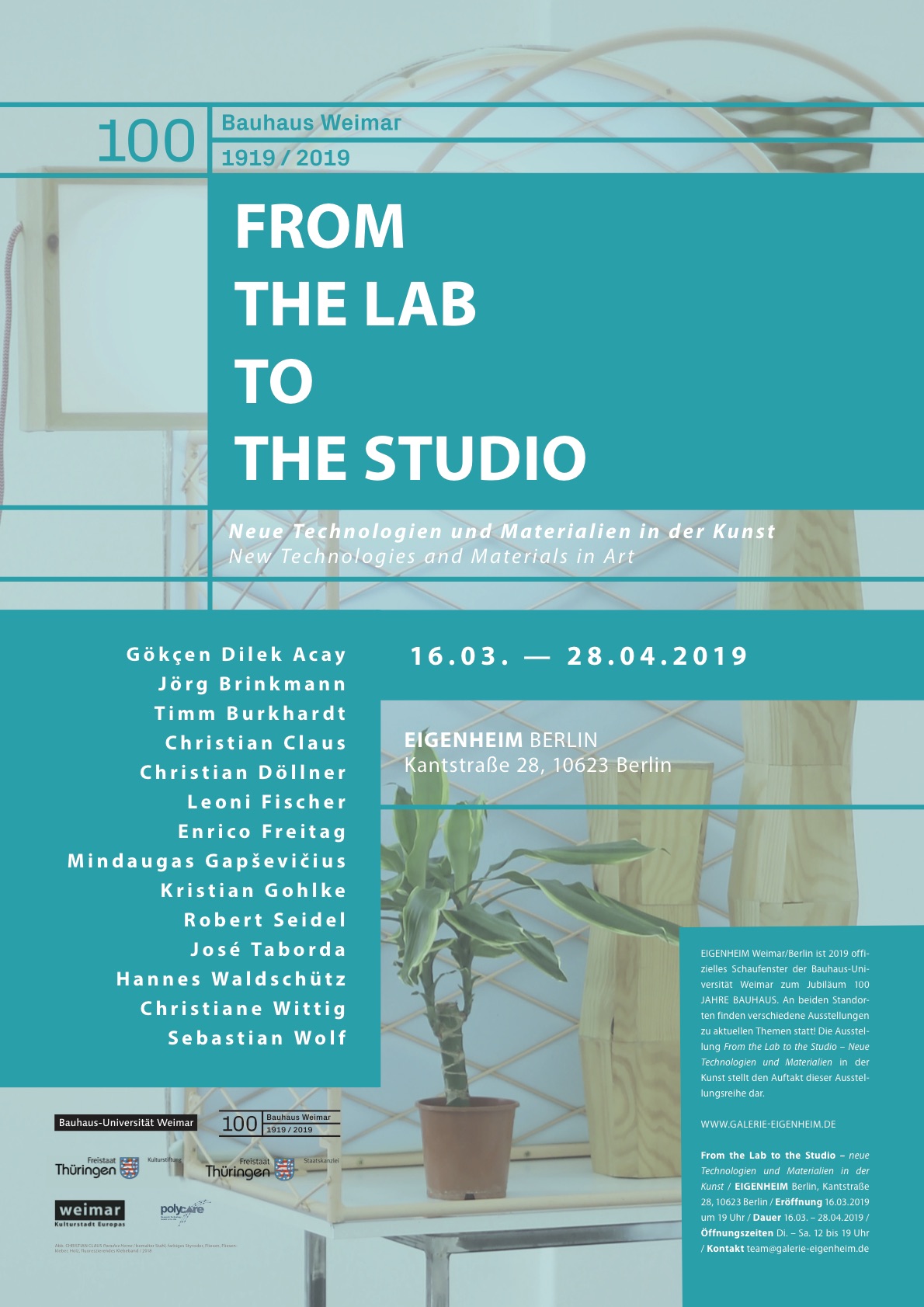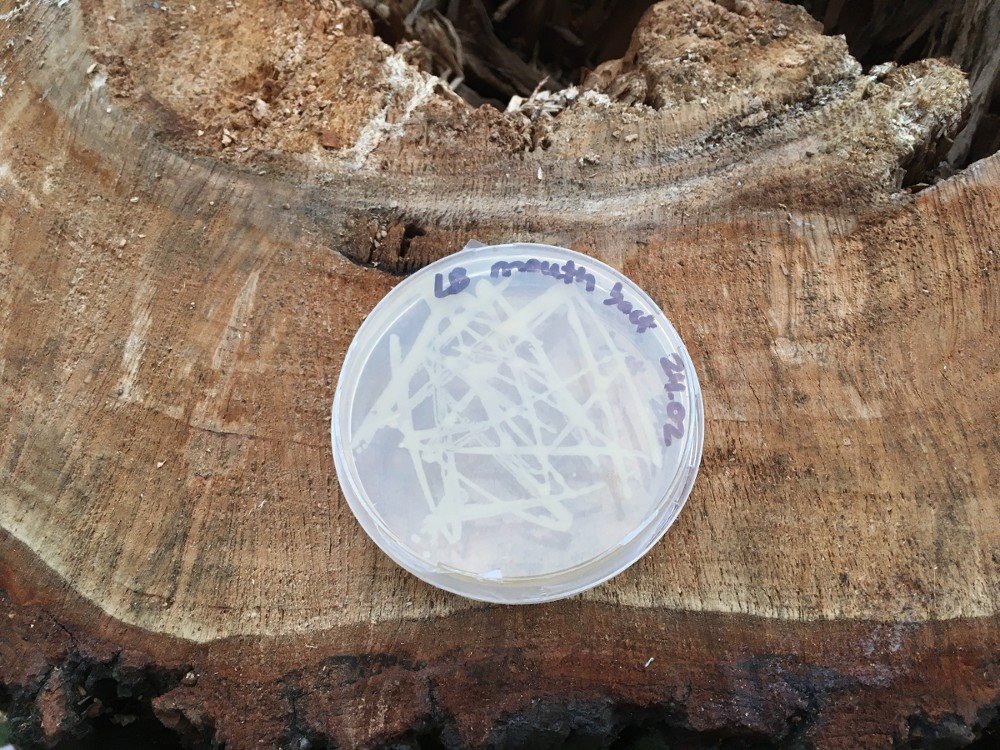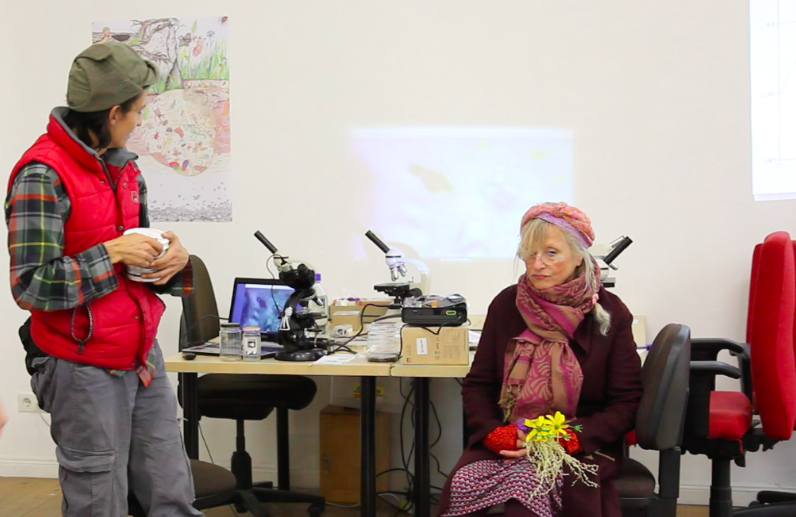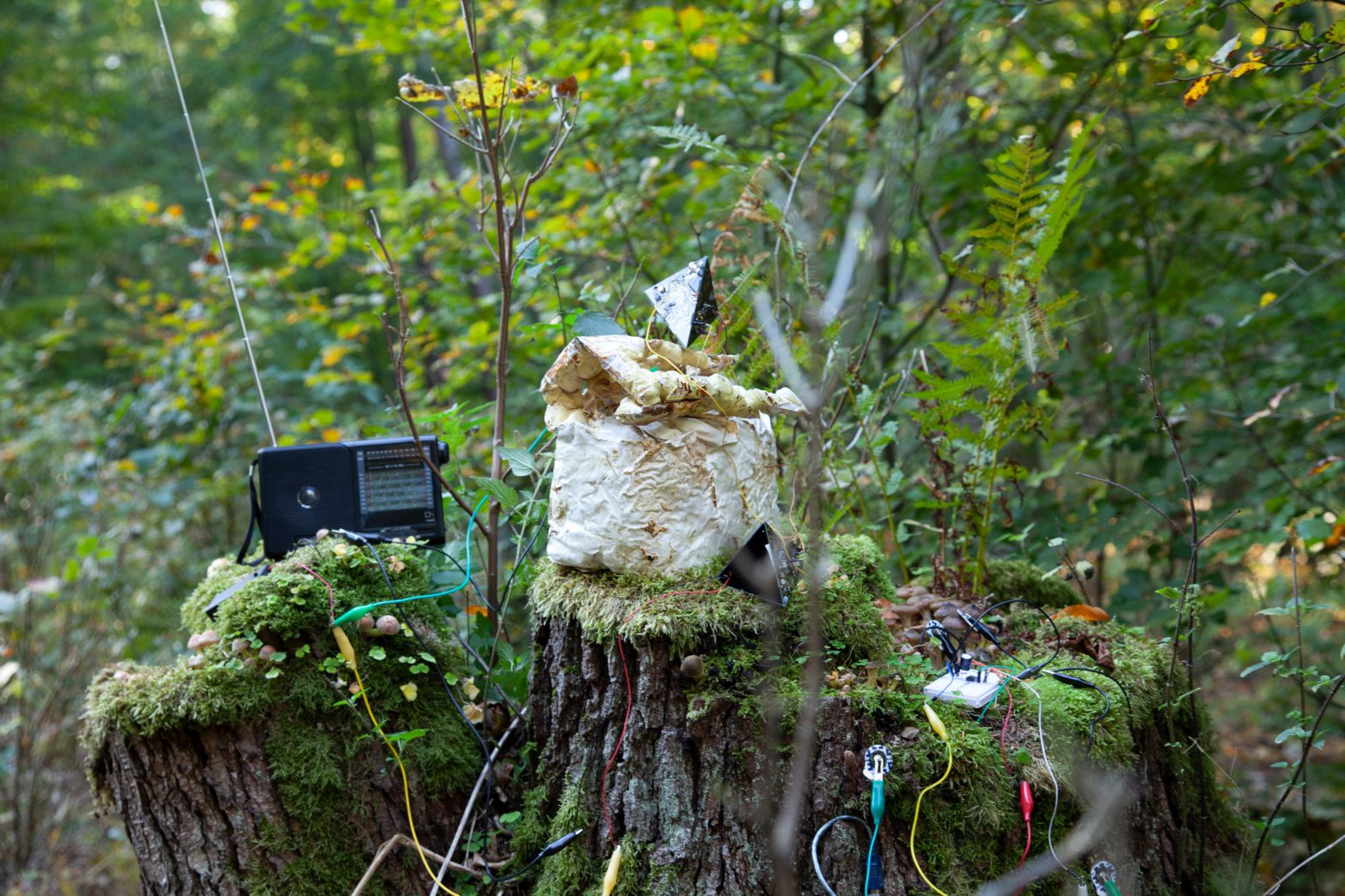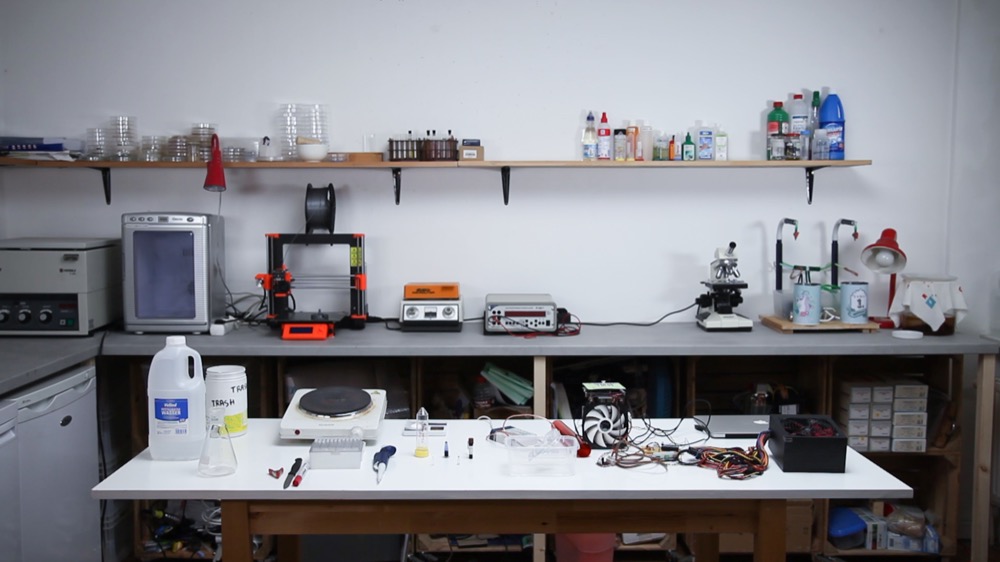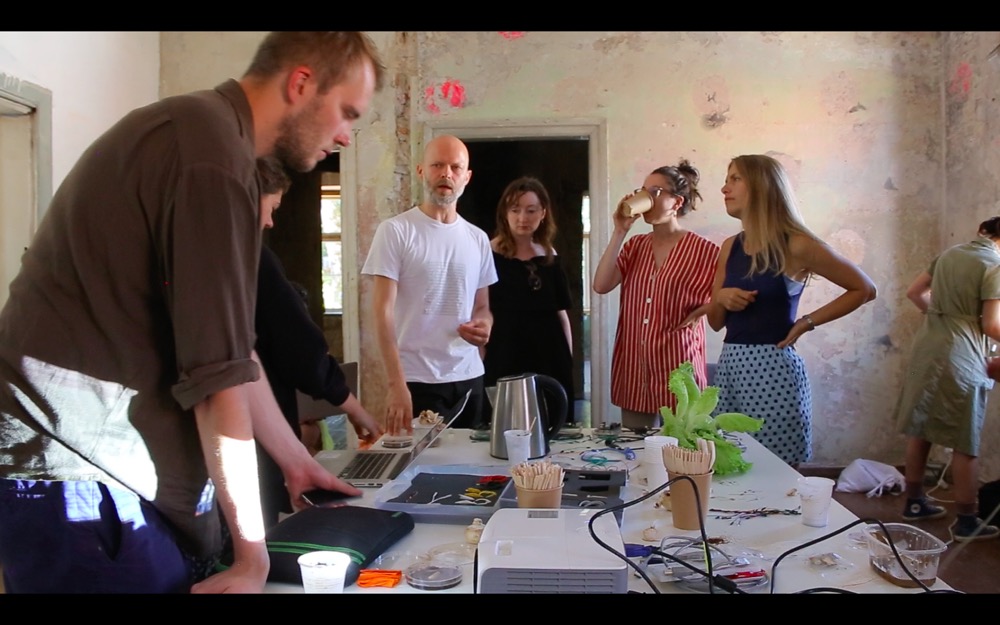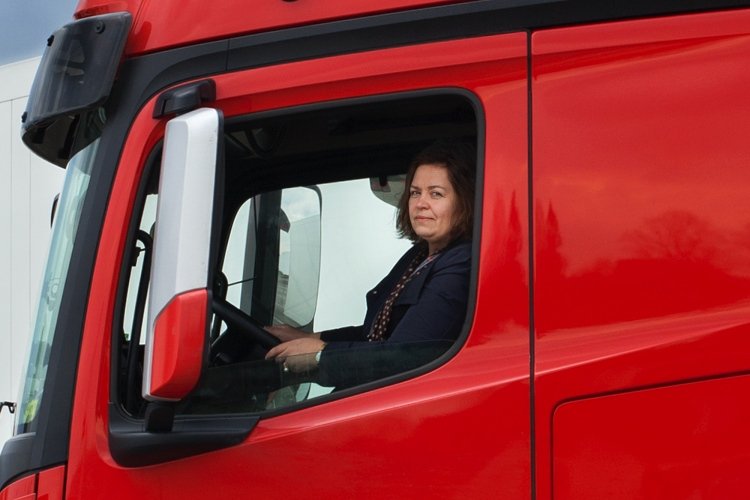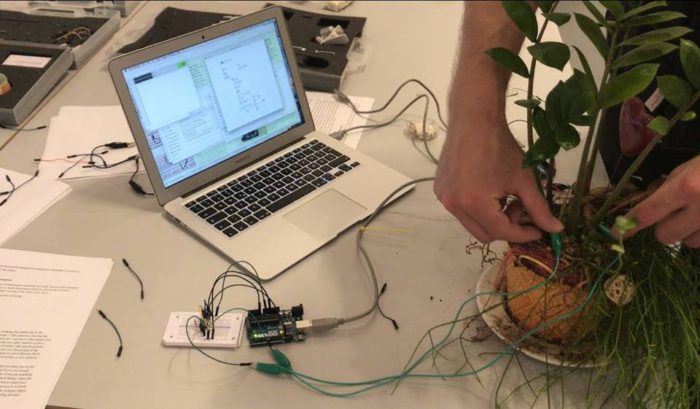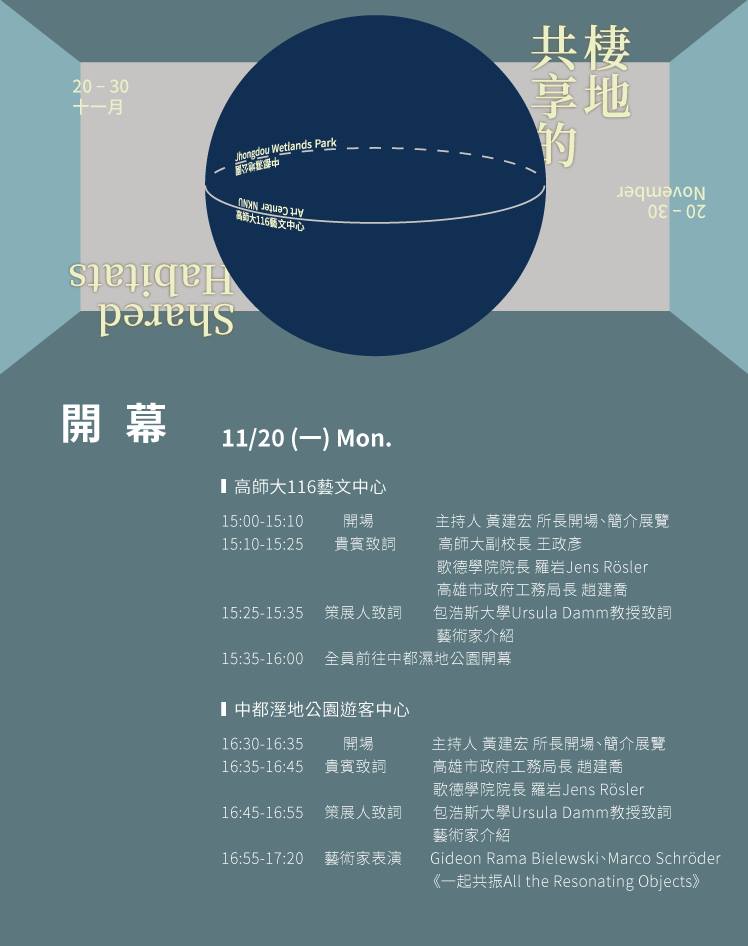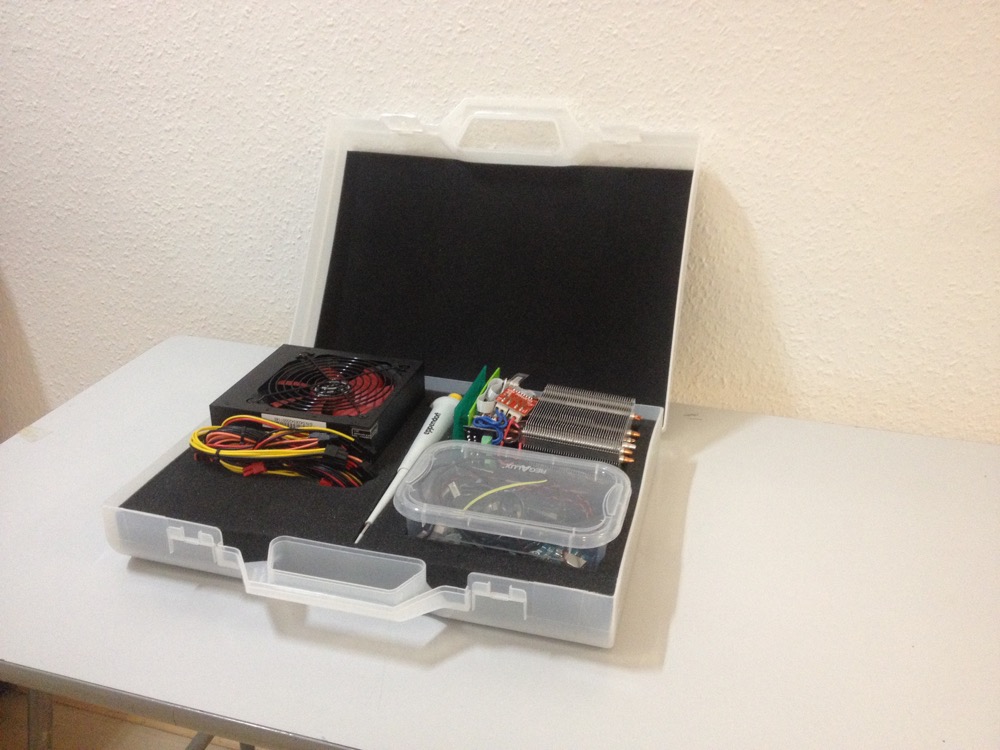Installation with toolkit, manual, and video tutorial
Eigenheim Berlin cordially invites to the opening on 16.03.2019 at 7 p.m. at Kantstraße 28 in Berlin Charlottenburg.
The toolkit “Mycorrhizal networks or how I hack plant conversations” was developed between 2016-2019. Two experiments and the video tutorial of the toolkit were developed in collaboration with Martin Howse.
The exhibition „from the lab to the studio – new technologies and materials in art“ brings together works by students, graduates and staff in the fields of free art, product design, media art and media design, the professorship Human-Computer Interaction and the professorship Design of Media Environments. Continue reading “Mycorrhizal networks or how I hack plant conversations @ Eigenheim Berlin”
